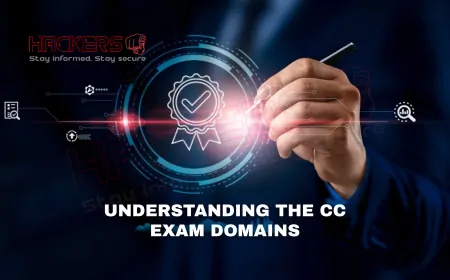The Difference Between Associate and Expert Level Azure Certifications
Cloud computing is reshaping the tech world, and Microsoft Azure is at the forefront of this transformation. As businesses increasingly adopt Azure for their cloud needs, professionals with Azure certifications are in high demand. But with a variety of certifications available, choosing the right one can feel overwhelming. Should you aim for an Associate-level certification or push for an Expert-level credential? Understanding the differences between these two levels is key to charting your career path. In this blog post, we’ll break down the distinctions between Associate and Expert-level Azure certifications, helping you decide which is best for your goals. Whether you’re new to cloud computing or a seasoned pro, this guide will clarify what each level offers and how it can shape your future.

Table of Contents
- What Are Azure Certifications?
- Understanding Associate-Level Azure Certifications
- Understanding Expert-Level Azure Certifications
- Key Differences Between Associate and Expert Certifications
- Who Should Pursue Each Level?
- How to Prepare for Associate and Expert Certifications
- Career Impact of Each Certification Level
- Conclusion
- Frequently Asked Questions (FAQs)
What Are Azure Certifications?
Microsoft Azure certifications are credentials that validate your skills in using Azure, Microsoft’s cloud computing platform. They cover a range of topics, from cloud fundamentals to advanced architecture and specialized areas like AI, security, and IoT. Azure certifications are divided into levels Fundamentals, Associate, Expert, and Specialty each targeting different skill sets and experience levels. This blog focuses on Associate and Expert levels, which are designed for professionals who want to demonstrate practical, hands-on expertise in Azure.
These certifications are globally recognized and help professionals stand out in a competitive job market. They show employers that you can design, implement, and manage Azure solutions effectively.
Understanding Associate-Level Azure Certifications
Associate-level Azure certifications are mid-tier credentials aimed at professionals with some experience in cloud computing or IT. They focus on specific roles, such as administrators, developers, or security engineers, and test your ability to apply Azure skills in practical scenarios. Popular Associate-level certifications include:
- AZ-104: Microsoft Azure Administrator: Focuses on managing Azure resources, virtual machines, and storage.
- AZ-204: Developing Solutions for Microsoft Azure: Covers building and deploying cloud applications.
- AZ-500: Microsoft Azure Security Technologies: Emphasizes securing Azure environments.
Associate certifications typically require 1–2 years of experience with Azure or related technologies. They’re ideal for professionals transitioning from general IT roles to cloud-specific positions.
Understanding Expert-Level Azure Certifications
Expert-level Azure certifications are advanced credentials for professionals with deep expertise in Azure. They’re designed for those who can design complex solutions and lead cloud initiatives. The two main Expert-level certifications are:
- AZ-305: Designing Microsoft Azure Infrastructure Solutions: Tests your ability to design scalable and secure Azure architectures.
- AZ-400: Designing and Implementing Microsoft DevOps Solutions: Focuses on implementing DevOps practices using Azure tools.
Expert certifications often require an Associate-level certification as a prerequisite and demand significant hands-on experience. They’re suited for senior professionals or those aiming for leadership roles.
Key Differences Between Associate and Expert Certifications
While both Associate and Expert certifications validate Azure expertise, they differ in scope, difficulty, and purpose. Here’s a detailed comparison:
| Aspect | Associate Level | Expert Level |
|---|---|---|
| Experience Required | 1–2 years of Azure or IT experience | 3+ years of advanced Azure experience |
| Focus | Role-specific skills (e.g., administration, development) | Designing complex solutions and leading projects |
| Difficulty | Moderate, practical knowledge | High, requires strategic thinking |
| Prerequisites | None, but fundamentals recommended | Often requires Associate certification |
| Career Impact | Mid-level roles (e.g., Azure Administrator) | Senior roles (e.g., Cloud Architect) |
This table highlights that Associate certifications are more accessible, while Expert certifications demand deeper expertise and strategic skills.
Who Should Pursue Each Level?
Choosing between Associate and Expert certifications depends on your experience, career goals, and technical background. Here’s a guide:
- Associate Level:
- Beginners transitioning to cloud roles.
- IT professionals with some Azure experience.
- Those aiming for roles like Azure Administrator or Developer.
- Expert Level:
- Experienced Azure professionals seeking leadership roles.
- Those with Associate certifications looking to advance.
- Professionals aiming for roles like Cloud Architect or DevOps Engineer.
If you’re new to Azure, start with Associate certifications to build a strong foundation before tackling Expert-level exams.
How to Prepare for Associate and Expert Certifications
Preparing for Azure certifications requires a structured approach. Here’s how to get ready for each level:
- Associate Level:
- Use Microsoft Learn for free, role-specific learning paths.
- Practice with Azure’s free tier to gain hands-on experience.
- Take practice exams to familiarize yourself with question formats.
- Expert Level:
- Complete an Associate certification first to build foundational knowledge.
- Deep dive into advanced Azure services like Azure Kubernetes Service (AKS) and Azure Blueprints.
- Work on real-world projects to apply strategic design skills.
Both levels benefit from joining Azure communities, attending webinars, and using platforms like Pluralsight or Udemy for additional resources.
Career Impact of Each Certification Level
Azure certifications can significantly boost your career, but their impact varies by level:
- Associate Level: Opens doors to mid-level roles like Azure Administrator, Developer, or Security Engineer. These roles are in demand across industries like finance, healthcare, and retail.
- Expert Level: Positions you for senior roles like Cloud Architect or DevOps Engineer, where you’ll lead cloud strategy and implementation. These roles often come with higher salaries and leadership opportunities.
Both levels enhance your credibility, but Expert certifications are particularly valuable for standing out in competitive, high-level positions.
Conclusion
Choosing between Associate and Expert-level Azure certifications depends on where you are in your career and where you want to go. Associate certifications are perfect for building practical, role-specific skills, making them ideal for those starting or transitioning into cloud roles. Expert certifications, on the other hand, cater to seasoned professionals ready to design and lead complex Azure solutions. Both levels offer significant career benefits, from higher earning potential to global recognition. By understanding their differences and aligning them with your goals, you can take confident steps toward a rewarding career in cloud computing.
Frequently Asked Questions (FAQs)
What are Azure Associate certifications?
Mid-level credentials like AZ-104, AZ-204, and AZ-500, focusing on role-specific Azure skills.
What are Azure Expert certifications?
Advanced credentials like AZ-305 and AZ-400, targeting complex solution design and leadership.
Who should pursue Associate certifications?
Professionals with 1–2 years of IT or Azure experience aiming for mid-level roles.
Who should pursue Expert certifications?
Experienced professionals with Associate certifications seeking senior roles.
Do Associate certifications have prerequisites?
No formal prerequisites, but Fundamentals certifications are recommended.
Do Expert certifications have prerequisites?
Yes, often an Associate certification like AZ-104 or AZ-204.
How difficult are Associate certifications?
Moderate, requiring practical knowledge of Azure services.
How difficult are Expert certifications?
Challenging, requiring strategic thinking and advanced Azure expertise.
Can I skip Associate and go for Expert certifications?
Possible but not recommended without significant Azure experience.
What roles can I get with Associate certifications?
Roles like Azure Administrator, Developer, or Security Engineer.
What roles can I get with Expert certifications?
Senior roles like Cloud Architect or DevOps Engineer.
How long does it take to prepare for Associate exams?
2–3 months with consistent study and practice.
How long does it take to prepare for Expert exams?
3–6 months, depending on prior experience.
Are Azure certifications globally recognized?
Yes, Microsoft certifications are respected worldwide.
Do Azure certifications expire?
No, but staying updated with Azure changes is advised.
Can I take Azure exams online?
Yes, Microsoft offers online proctored exams.
What resources help prepare for Associate certifications?
Microsoft Learn, Pluralsight, and practice exams are great options.
What resources help prepare for Expert certifications?
Advanced Microsoft Learn paths, real-world projects, and community forums.
Do Associate certifications increase salary?
Yes, they can boost earning potential for mid-level roles.
Do Expert certifications offer better career growth?
Yes, they qualify you for senior roles with higher salaries and leadership opportunities.
What's Your Reaction?










































































